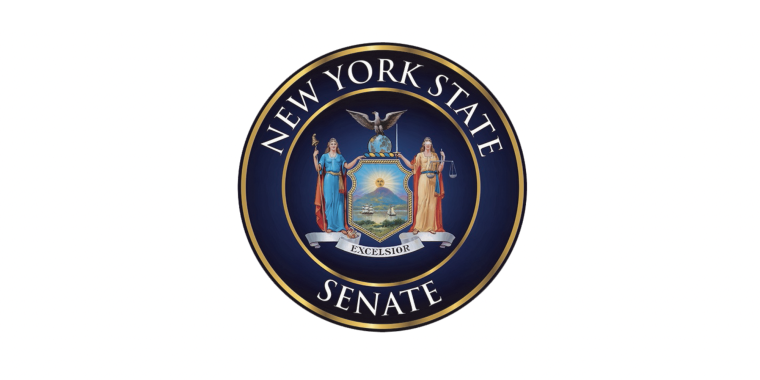
Testimony The New York City Council Committee On Consumer Affairs Regarding New York Street Vendors on October 9, 2003
Liz Krueger
July 12, 2010
Good morning. I am State Senator Liz Krueger. I represent the 26th Senate District, which includes Midtown, East Midtown, and the Upper East Side. As the representative of several major commercial areas, I am very aware of the many issues related to vendors operating in New York City. It is essential that New York State and New York City work together to develop a balanced approach to vendors that both protects vendors and their customers while ensuring that that vendors do not negatively impact the health and safety of neighborhoods by overly exacerbating crowding in New York City’s Central Business Districts.
Unfortunately, New York State has not done its part. By allowing laws regulating vendor operation in the Central Business Districts to expire, the state legislature has created an untenable and dangerous situation in certain areas of the city, such as Times Square and parts of 34th Street, and contributed to serious congestion problems in other areas of the city as well. If you have been to Times Square recently, you cannot miss the problems created by the proliferation of both legal and illegal vendors. The sidewalks are so overcrowded that large number of people walk in the street on Broadway due to the wall of vendors on the sidewalk. As they walk in the street they must also deal with illegally parked vehicles loading and unloading merchandise for the vendors. I fear that these conditions must inevitably lead to serious accidents.
As a first step toward addressing this problem it is essential that the state act to reestablish regulations limiting vending on main arteries in the Central Business Districts. In doing so, the legislature should not substantially weaken the old law by allowing additional vendors on restricted streets, reducing sidewalk clearance requirements, or allowing additional assistants for licensed vendors.
Renewing the old law is only a first step in establishing a more rational and effective system for regulating vendors in New York City. Even before the law expired, there were numerous problems with enforcement of existing laws, as well as serious and legitimate concerns regarding the distribution of specialized vendors licenses for disabled veterans. Once the State does its job by renewing the law, New York City must reevaluate its system of vendor licenses to develop a more rational system. Here are a few suggestions regarding issues that should be addressed in such an evaluation.
Enforcement Issues: Current vendor laws are extremely difficult for police to enforce for a number of reasons. One problem is the proliferation of different rules for different kinds of vendors, which can make it extremely difficult to determine when a vendor is in violation of the law. One major goal of evaluation of vendor rules would be to work toward standardization of rules across vendor categories and, where possible, geographically, which would facilitate fair enforcement of vendor laws.
Another enforcement problem is created by the fact that once any vendors are allowed in a particular area, that area is effectively opened up to all vendors. This is the current situation in Times Square, where the fact that disabled veteran vendors are now allowed there means that First Amendment vendors also enter the area in large numbers. The congestion then creates significant opportunities for illegal vendors to operate with impunity, because they are able to use the mass of legal vendors as cover, making it hard for the police to identify them. This is one reason why it is essential that particularly crowded areas of the city continue to be kept free of any vendors on main arteries in Central Business Districts, in order to enable the police to more easily identify illegal vendors in the Central Business District.
It may also be useful to think creatively about the methods by which vending zones are established. A standardization of street clearance rules, for instance, might make it easier to determine and enforce bans on vending on crowded sidewalks. Furthermore it may be useful to consider the creation of vendor licenses with specific geographic limits, perhaps by borough, which would serve as a way of increasing the number of vendor licenses without increasing congestion in the Central Business Districts.
A final enforcement issue is the difficulty in identifying recidivist illegal vendors, who frequently give false identification. This effectively means that even when police are able to arrest them, every offense is treated as a first offense, and they simply return to the streets immediately. Proposed state legislation gives police the right to fingerprint vendors upon arrest, which would provide a method of tracking them, and therefore of increasing penalties for subsequent offenses. This would be extremely useful in discouraging illegal vending. While there are significant and legitimate concerns about fingerprinting because so many illegal vendors are undocumented immigrants, as long as the city abides by the privacy protections recently implemented by Mayor Bloomberg, fingerprinting can be done without placing the vendors at risk for federal action based on their immigration status.
While rules can be improved to make enforcement easier, that does not obviate the responsibility of the police to make every effort to enforce existing law. Fingerprinting and other changes such as standardization may resolve some of the problems with enforcement, but regardless of whether these measures go forward, we need vigilant and coordinated enforcement by police, including cooperation with companies going after dealers of black market goods.
License Distribution: There are important historical reasons for recognizing the rights of disabled veteran vendors. At the same time, I believe it is essential to review the process by which the distribution of “blue” and “yellow” licenses is determined. This process should be evaluated to ensure the distribution of blue licenses is equitable. In addition, it has been reported to me that there are a significant number of blue licenses that are not currently being used. If this is accurate they should be redistributed to active vendors. While I respect the desire to keep the number of blue licenses to a minimum to reduce crowding in Central Business Districts, since these licenses are particularly sought after it is essential that the process by which they are distributed is both fair and transparent.
Thank you for the opportunity to testify today. I appreciate the Council’s interest, and look forward to working with you in the future on this important issue.

